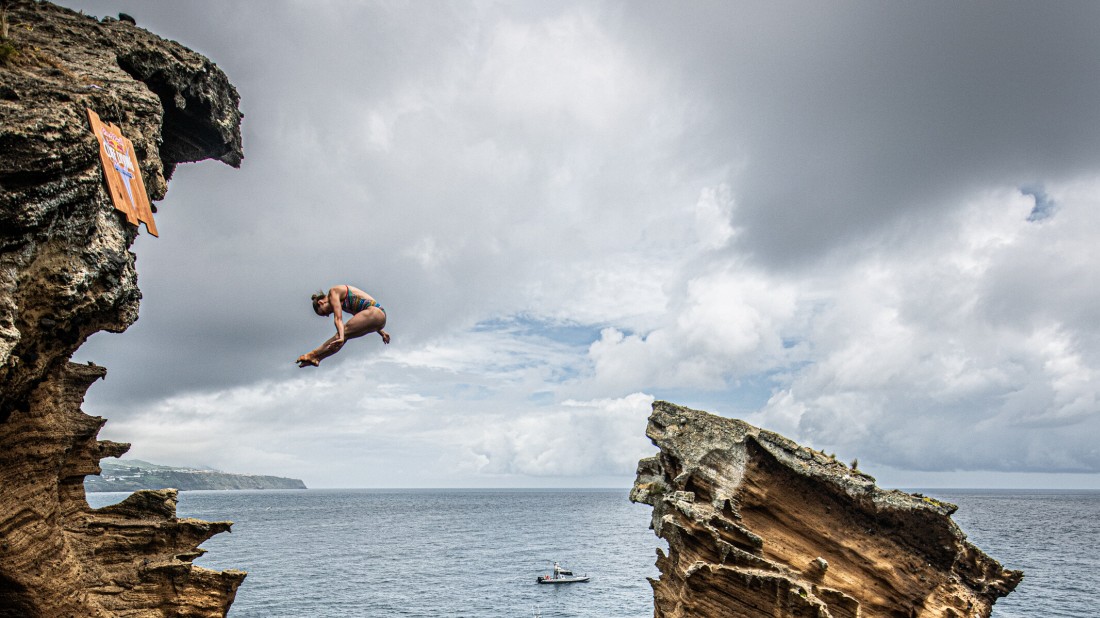
“When I raise my feet off the ground, pure happiness flows through me” – sport
SZ: Ms. Schmidbauer, you have been living in New Zealand since October 2019, initially voluntarily, then involuntarily. How did this happen?
Iris Schmidbauer: I traveled through New Zealand after the 2019 season, I wanted to stay a little longer and I came to Auckland, where I started training at the club. I took a room in a shared flat for a few months until the start of the 2020 season. After that I wanted to leave. But then Corona came. Going back to Germany means I will never go back to New Zealand again due to strict entry restrictions. Then I will have to do without the very good conditions here indefinitely. Now I’m still in my room, stuck here.
How did I get Corona in New Zealand?
There was a strict lockdown in March and April 2020. That was tough as I was home alone. I sat in my room for weeks trying to stay in shape with exercise. Every now and then I go out briefly, climb trees, do flip flops in the park or teach myself a skateboard in the parking lot. There has been a loosening since the end of April. Today life is as good as the infinite, concerts are held, restaurants are open and you can meet people. So far, there have been 25 deaths due to Corona across the country.
“Jumping in front of 80,000 spectators is an indescribable feeling, I miss it.”
Your work visa has expired, and you applied for another visa, but it was actually rejected once.
So far I have worked as a sports therapist and personal trainer to finance my sport. Now that is over, now I can just wait, hopefully for another visa and train. This state of forgetfulness is involuntary and uncertainty bothering me. But somehow it works.
Does this mean that you are now living on bail money alone?
It would be nice. In my sport, there are no sponsors except for superstars. I live very cheap, however, I am paying 600 € in rent and 180 € in training fees per month. My grandparents send me money so I can go back to work. But of course it won’t work in the long run. Should I give up on the whole thing? This question is definitely in my head.
Your last cliff jumping competition was in 2019, don’t you get discouraged?
I have no problems motivating myself. I might be training more than ever. Six times a week, always three to five hours: jumping off the tower, on a trampoline, and training in the weight room. I am really excited that the competitions will continue, but it is not clear yet when and where the next competition will take place. Jumping in front of 80,000 fans is an indescribable feeling, I miss it. I’ve heard Cliff Diving Series end of season 2021 may be coming to Auckland – I really want to be there, almost as a local.
How did you come up with the idea of becoming a cliff diver in the first place?
I first saw the dive on TV at the 2008 Olympics. I was instantly mesmerized, then tried a few jumps out of one or three, but not really seriously. Later, my parents picked me up once a month from Pähl, the place I grew up, 45 kilometers from Munich. I took trial lessons and then trained once a week. I didn’t really start jumping until I was 19. I was fortunate to have a ten meter tall wooden tower at Utting am Ammersee, which I could train in the summer. Since then, the jump has pulled me in and I can’t let go. These two seconds in the air are the reward for all your efforts.
“If something happens, it hurts a lot”: Cliff Iris Schmidbauer’s submarine dives into the water at speeds of 75 kilometers per hour.
(Photo: Romina Amato / Red Bull Content Pool / OH)
what do you like about it?
Complexity! The right jump, carefully planned dance in the air, and finally the plunge at 75 kilometers per hour in the water, which can be as solid as concrete. I like to stand barefoot on a rock and totally feel nature. Indoor scuba diving is fine, but I prefer wild, as I jump into the sea from a real cliff. My hardest jump, double twist back triple somersault, I only have other players in the world apart from me.
Surely this is prone to injury?
Not really, preparation is everything. But when something happens, it hurts a lot. In 2015 I felt “scared” in the air and then hit my back after twenty meters. I managed to swim to the bank on my own. I had some lacerations on my back, and had to spit out blood because some of the alveoli burst on shock and I had a stroke. Otherwise, everything was fine.
It doesn’t look like an advertisement for cliff jumping.
That was two accidents in hundreds of jumps! Even worse were the nightmares I ran every 20 meters after the accident. Otherwise, I can’t sleep the night before the contest, as I keep going through every element of the jump in my head. After all, it’s not normal to throw yourself off a cliff. But for the thousandth of a second that I raise my feet off the ground, pure happiness flows through me.
You have not been home in Bavaria for the last 17 months. What do you miss the most?
Much. My brother, my parents and my grandparents. Alpine skiing and snowboarding. Hiking through the Bavarian woods, Grandma’s Kaiserschmarrn, apple pie and, above all, a raspberry cake from Kasprowicz’s bakery in the neighboring village of Kerschlach.

“Proud explorer. Freelance social media expert. Problem solver. Gamer. Extreme travel aficionado.”
